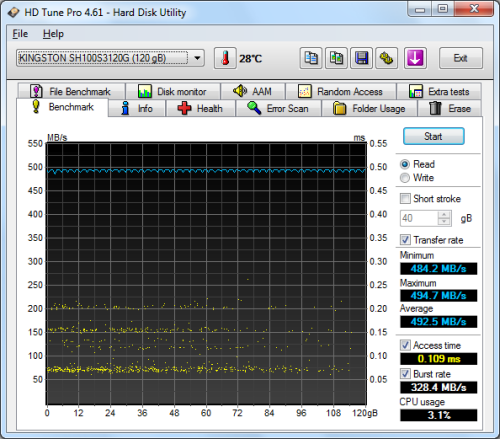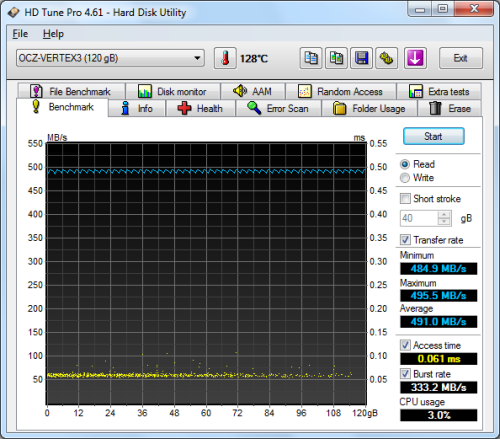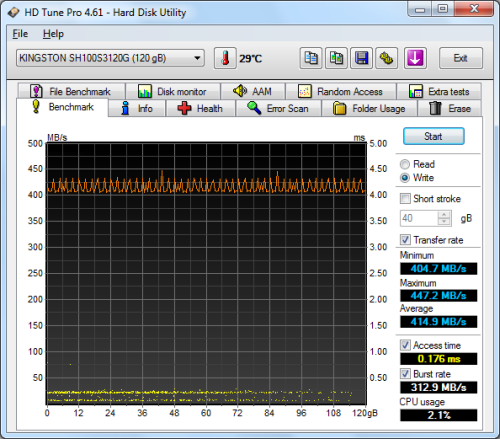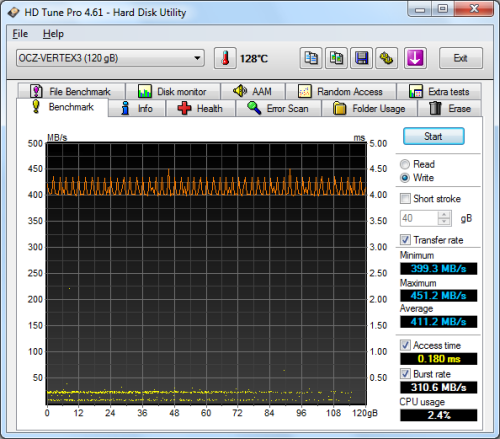AS SSD:
AS SSD is a relatively new benchmark designed specifically for solid state drives. The application contains five synthetic tests used to determine the sequential and random read and write performance of a drive. Take note that AS SSD uses incompressible data in its tests, which can have a major impact on the scores of SandForce-based drives like the HyperX.
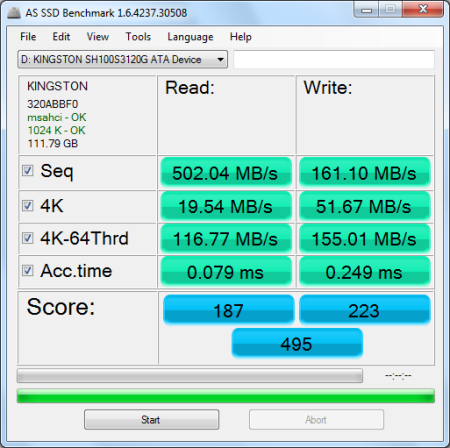
AS SSD also includes a copy benchmark. This test copies an ISO (two large files), program (many small files) and game (small and large files), returning the speed and duration of each.
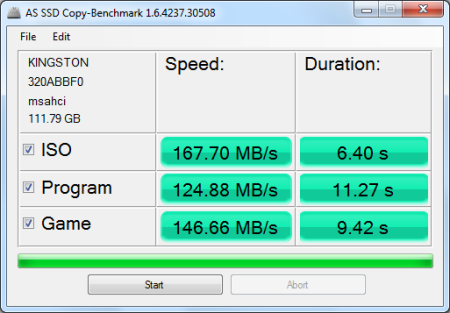
HD Tune Pro 4.61:
Next, I ran a series of tests using HD Tune Pro. This hard disk utility measures a drive's performance by testing its sequential read and write speeds as well as its access time, burst rate and CPU usage. For this review, I'm also going to use it to benchmark the HyperX's random read and write speeds, random access times and the number of operations per second.
The HyperX performed very well when benchmarked with HD Tune. The drive had average read and write speeds of 492.5 MB/s and 414.9 MB/s, respectively, and a burst rate of 328.4 MB/s when reading.
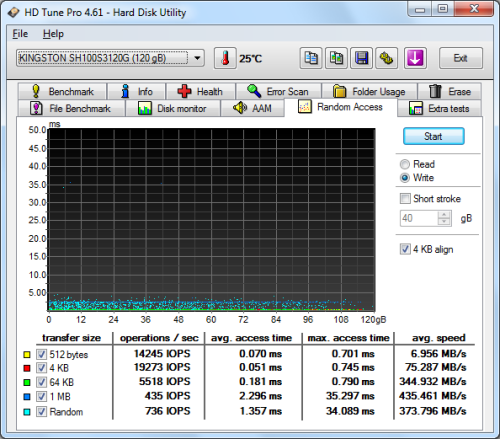 Kingston HyperX 120GB - HD Tune Random Access Write |
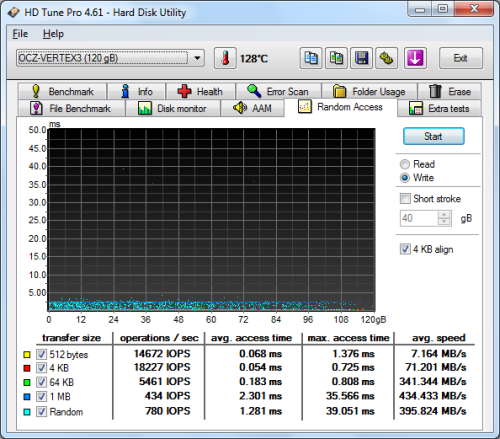 OCZ Vertex 3 120GB - HD Tune Random Access Write |
The HypreX didn't disappoint when doing random reads and writes. When reading 4KB blocks, the drive reached 13514 IOPS and had an average speed of 52.791 MB/s. The HyperX was even faster when writing, reaching 19273 IOPS with an average speed of 75.287 MB/s.
Iometer:
Lastly, I ran a series of tests using Iometer. This tool can be configured to benchmark a number of things. In this case, I used it to measure the HyperX's read and write speeds and the number of operations per second. The tests were run using both repeating and random bytes and a queue depth of 3.

The HyperX's performance was very similar to what we saw in our other tests. With highly compressible, repeating data, the drive was able to read at 526.93 MB/s and write at 464.11 MB/s. The HyperX did not slow nearly as much as the Agility 3 when reading random data. However, its write speeds dropped to 164.19 MB/s.
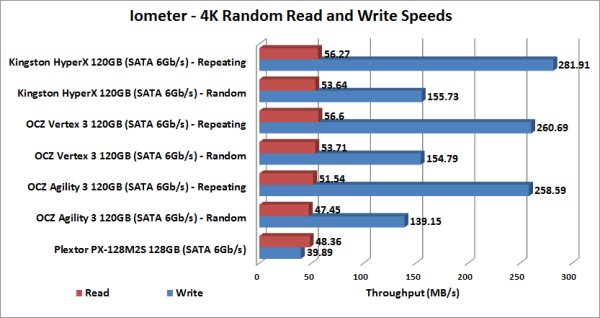
The HyperX performed very well when doing random reads and writes. With repeating data, the drive was able to read at 56.27 MB/s and write at a blazing 281.91 MB/s. Here too, the HyperX took a performance hit when tested with random data. However, it was still able to write at 155.73 MB/s.
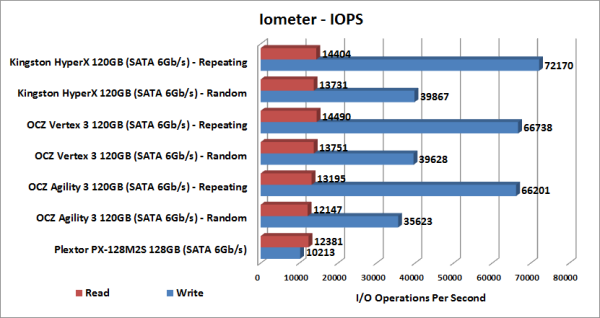
According to Kingston, the HyperX is capable of 60,000 IOPS when randomly writing 4K blocks. In our tests, the drive reached 72,170 IOPS with repeating data and 39,867 IOPS with random data.


